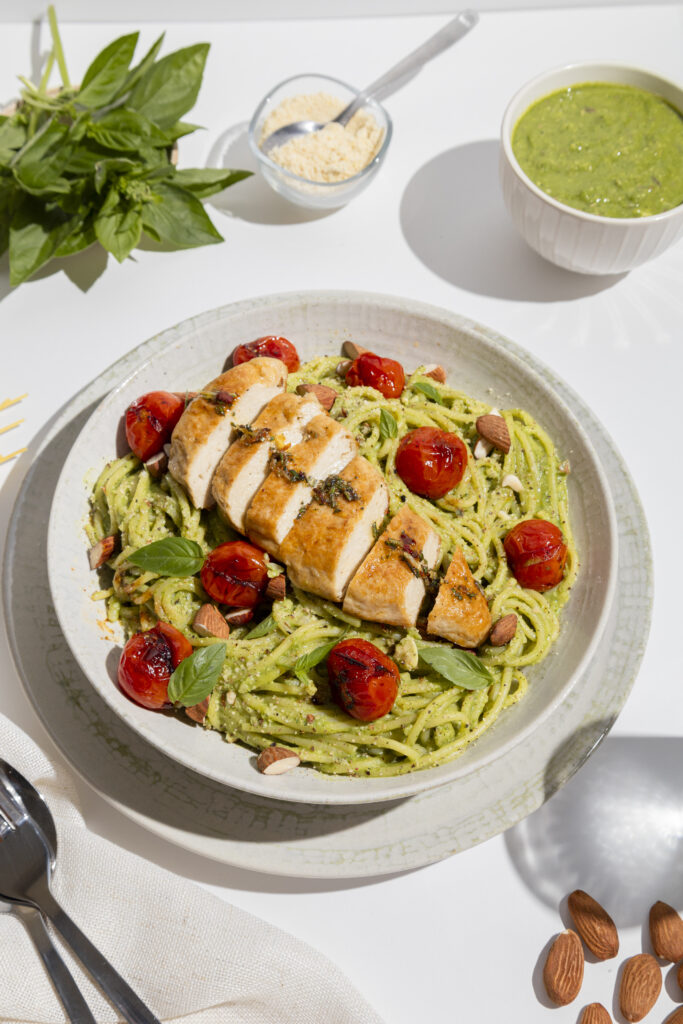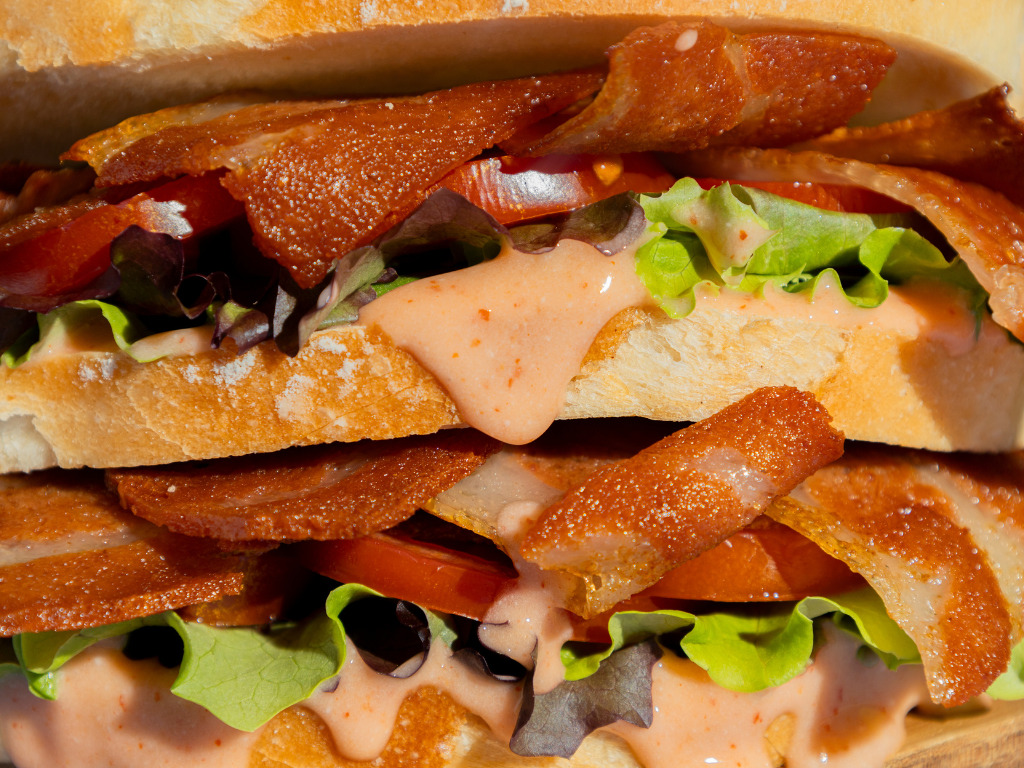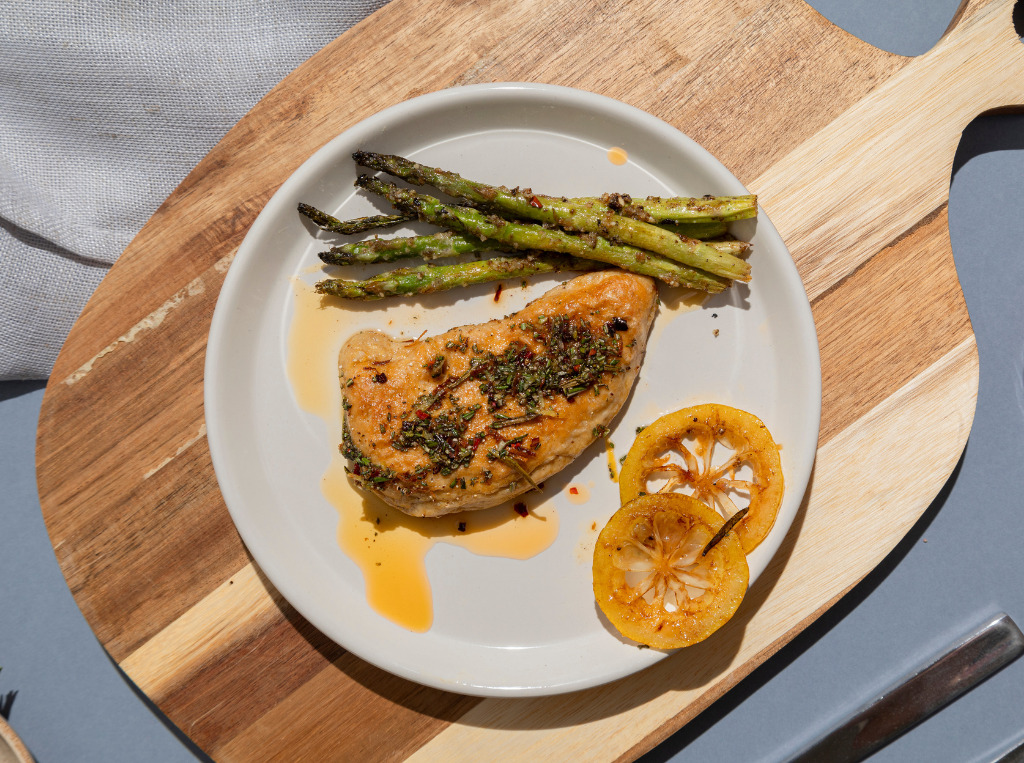Exclusive: Mycelium Startup Unveils ‘EU-First’ Whole-Muscle Cut Chicken Breast
4 Mins Read
Months after introducing its mushroom bacon to the Spanish market, Barcelona-based Libre Foods has announced it will be launching the EU’s first mycelium-based whole-muscle chicken breast. The brand hopes to commercialise the vegan chicken by early next year, as the strain of fungi used isn’t considered a novel food and thus doesn’t require regulatory approval.
While Libre Foods initially set out to make mycelium bacon, the regulatory process in the EU meant that had to be put on hold. So the company pivoted to fruiting bodies of mushrooms to launch its vegan bacon last November.
But it’s sidestepping the regulatory obstacle with its new fungi-based chicken, which uses a strain of mycelium not classed as a novel food by the EU. This means it doesn’t need to go through an approval process in the EU, something the company has been specifically focusing on.
“Mycelium itself is not considered a novel food, only certain strains of it are,” Libre Foods CEO Alan Iván Ramos told Green Queen. “Since the early stages of our development, we’ve been working closely with our regulatory counsel to ensure that our strain selection and bioprocess are in line with EU regulations, as to focus our research on optimising the experience, nutrition, and price of our products for an agile and successful commercial rollout.”
Clean-label mycelium chicken wins fans over

Libre Chicken, which is made using biomass fermentation, has 25% fewer calories than conventional chicken, and outcompetes both its animal- and plant-based counterparts in dietary fibre by more than 25%. And while it currently contains 12.5g of protein per 100g, the company aims to be closer to conventional chicken when it launches.
Manufactured locally in Spain, the mycelium-based chicken breast will be priced more competitively than organic conventional chicken and plant-based chicken breasts, but the brand says the true victory would be price parity with traditional chicken. “So our focus will be on scaling and streamlining our operations quickly and strategically to achieve this in the next three years,” reveals Ramos.
The mycelium is the main element in a short ingredient list – its fibrosity enables the manufacturer to use significantly fewer ingredients. Apart from this, Libre Foods uses “low quantities of salt, natural flavours, and proteins”. This plays into current consumer trends – a global survey by Ingredion last year revealed that more than half of respondents find it important for products to have a short ingredient list.
It’s part of a wider effort to meet customer demands. Libre Bacon, which is now available in over 30 points of sale, has had a retention rate of nearly 100%. And having spoken with the brand’s existing consumers, Ramos says more than 90% have indicated their interest in buying the mycelium chicken breast.
This validates Libre Foods’ goal to put fungi at the forefront of future food. The startup claims it’s the only company “leveraging the entire fungi organism for its product range”, utilising upcycled materials alongside high-performing fungal strains to achieve “industry-leading yields” through its R&D and novel fermentation technology. It now wants to scale up this tech, increase its R&D capabilities, and secure strategic partnerships to commercialise and bring down costs.
And to do so, the startup will soon open a fundraising round to accelerate this development. In April 2022, it received $2.5M in an investment round led by Green Generation Fund, with other participants including Good Seed Ventures, ProVeg International and Veg Capital.
Further mycelium innovations

Libre Foods plans to scale and commercialise the whole-muscle cut mycelium chicken breast by early 2024, alongside its efforts to expand into the EU. “We aim to follow the same course of what’s been most successful for us with our Libre Bacon,” notes Ramos. “We’ll be launching into foodservice under our Libre brand to gather market insights quickly, iterate according to feedback, and then prepare a wider rollout with a refined and market-validated positioning.”
Green Queen reported in December 2021 that Libre Foods was hoping to be the world’s first company to unveil mycelium-based whole-cut steak. It also had plans to create a vegan seafood range, but that is on the back burner as the brand focuses on its meat lineup. While the shift to fungi-based bacon has been successful and the new chicken is receiving positive feedback, that doesn’t signal an end to the innovation.
“The fascinating aspect of our mycelium is that it serves as a blank canvas for a wide range of products,” explains Ramos. “Our development of Libre Steak is going well, yet we still want to do more research on fungi’s ability to support the bleeding and fatty elements of the steak, which we have every indication they can.”
He adds: “We’ve dived head first into the world of fungi and are truly convinced, after our extensive work, that fungi are the key to transforming our food system. What we’re positioning ourselves to do is to be the company that unlocks it.”




